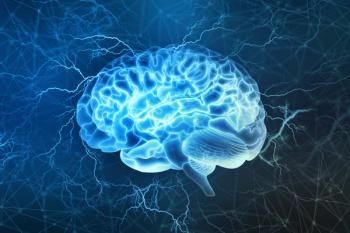
Does type 1 diabetes impact on the brain persist into puberty?
Previous research has shown that type 1 diabetes can impact the brain. A study examines whether this impact can persist or even worsen.
Type 1 diabetes has an impact on a number of health outcomes in children including an impact on the brain and cognitive ability when compared to those who do not have the autoimmune condition. An
The investigators looked at 2 cohorts of children, those with type 1 diabetes and age-matched control subjects who did not have diabetes. Each child had unsedated magnetic resonance imaging and cognitive testing up to 4 times over 6.4 ± 0.4 (range 5.3–7.8) years. Continuous glucose monitoring and HbA1c monitoring happened on a quarterly basis. FreeSurfer brain imaging software-derived brain volumes and cognitive metrics were examined longitudinally between both groups using mixed-effects models at 6, 8, 10, and 12 years.
A total of 216 children were included in the study, with 144 in the type 1 diabetes group and 72 in the age-matched control group. Overall, the total brain, gray, and white matter volumes as well as verbal and full-scale intelligence quotients (IQs) were lower in the diabetes group at 6, 8, 10, and 12 years. The estimated group differences in full-scale IQ were −4.15, −3.81, −3.46, −3.11, respectively (P < 0.05), and the total brain volume differences were −15,410, −21,159, −25,548, −28,577 mm3 × 103 at 6, 8, 10, and 12 years, respectively (P < 0.05). The investigators found that the differences noted at baseline either persisted or increased over time. Additionally, the brain volumes and cognitive scores have a negative correlation with a life-long HbA1c and higher sensor glucose in diabetes.
The investigators concluded that the detectable differences in both brain volumes and cognitive scores continue in children who have early-onset type 1 diabetes and these differences are linked to metrics of hyperglycemia. They urge further study to discover whether these outcomes could be altered by rigorous diabetes control.
Reference
1. Mauras N, Buckingham B, White N, et al. Impact of type 1 diabetes in the developing brain in children: a longitudinal study. Diabetes Care. 2021:dc202125. doi:10.2337/dc20-2125
Newsletter
Access practical, evidence-based guidance to support better care for our youngest patients. Join our email list for the latest clinical updates.






